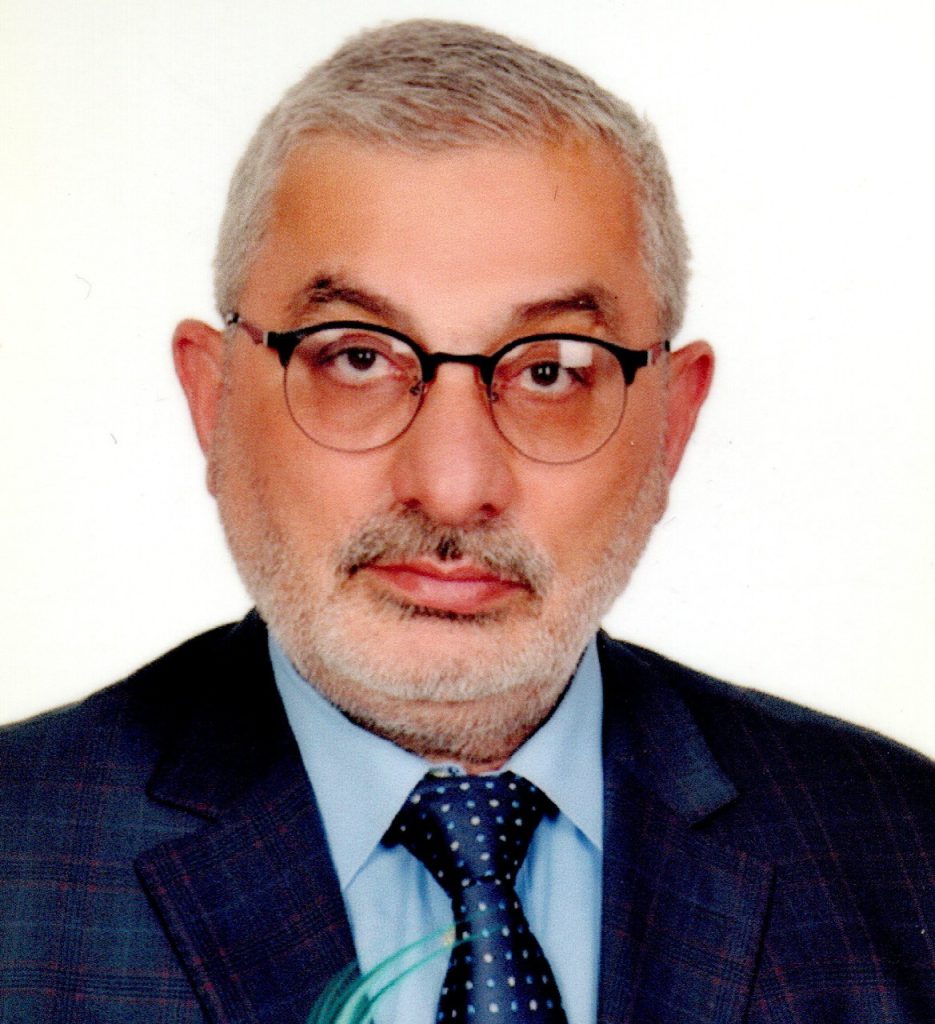Mr. Hassan M. Al-Rizzo
الاستاذ حسن مظفر الرزو

How Will Generative AI Processors Reshape the Principles & Concepts on Which Islamic Applications Are Based?
كيف ستعيد معالجات الذكاء التوليدي تشكيل المبادئ والمفاهيم التي ترتكز إليها التطبيقات الإسلامية؟
This presentation encompasses a forward-looking vision for the future of Islamic applications considering the revolution in generative artificial intelligence and large language models. It sheds light on the radical transformation that Islamic applications will witness, transitioning from limited traditional processing to advanced capabilities in understanding and analyzing Arabic and Islamic texts.
The presentation will illuminate how these technologies will reshape the concept of Islamic applications through a comprehensive comparative analysis of performance and accuracy between traditional models and generative intelligence. It will showcase new capabilities in processing different linguistic levels: grammatical, morphological, and semantic, extending to deep Islamic scholarly levels such as interpretive (Tafsir), jurisprudential (Fiqh), foundational (Usul), and purposive (Maqasid).
The presentation will propose an initial conceptualization for a large language model specialized in Islamic sciences, analyzing the requirements for its development, necessary resources, and technical and Islamic jurisprudential challenges. It will also discuss the fate of traditional processing methods such as text mining and knowledge extraction, and how they will evolve in the new era. The presentation will conclude by presenting graduated future scenarios and strategic recommendations for Islamic institutions, universities, and technology companies, along with a realistic roadmap for achieving this transformation, aimed at serving Muslim communities more effectively and accurately.
تتضمن الكلمة رؤية استشرافية لمستقبل التطبيقات الإسلامية في ظل ثورة الذكاء الاصطناعي التوليدي ونماذج اللغة الكبيرة. فيسلط الضوء على التحول الجذري الذي ستشهده التطبيقات الاسلامية، بالتحوّل من المعالجة التقليدية المحدودة إلى قدرات متقدمة في فهم وتحليل النصوص العربية والاسلامية.
وسيلقي الضوء على كيف ستعيد هذه التقنيات تشكيل مفهوم التطبيقات الإسلامية، من خلال تحليل مقارن شامل للأداء والدقة بين النماذج التقليدية والذكاء التوليدي. مستعرضًا القدرات الجديدة في معالجة المستويات اللغوية المختلفة: النحوية والصرفية والدلالية، وصولاً للمستويات الشرعية العميقة كالتفسيرية والفقهية والأصولية والمقاصدية.
وسيطرح تصوراً أوليًا لنموذج لغوي كبير متخصص في العلوم الإسلامية، محللاً متطلبات إنشائه، والموارد المطلوبة، والتحديات التقنية، والشرعية. كما سيناقش مصير المعالجات التقليدية كالتنقيب بالنصوص واستخلاص المعرفة، وكيف ستتطور في العصر الجديد.
ستختتم الكلمة بتقديم سيناريوهات مستقبلية متدرجة وتوصيات استراتيجية للمؤسسات الشرعية والجامعات والشركات التقنية، مع خارطة طريق زمنية واقعية لتحقيق هذا التحول، هادفاً لخدمة المجتمعات المسلمة بطريقة أكثر فعالية ودقة.
Biography
السيرة الذاتية
Mr. Hassan Al-Rizzo is a distinguished Senior Research Scientist. He has built a career at the intersection of advanced scientific research, the knowledge economy, intelligent computing, and the integration of generative AI into Islamic sciences and Arabic computational linguistics. Appointed as Senior Research Scientist by the Scientific Committee of the Presidential Diwan in Baghdad in 1997, he has since earned 62 national and international awards recognizing his scientific and scholarly achievements. His prolific academic contributions include 60 peer-reviewed scientific papers in international journals, 15 papers in Islamic studies, 65 additional articles across scientific and human sciences journals, and 28 books spanning ICT, knowledge economy, AI-driven Hadith sciences, Arabic linguistics, and Islamic sciences such as Qur’anic exegesis and comparative jurisprudence. He has presented 109 research papers at conferences worldwide, with his book on “e-Readiness of Arab States” shortlisted for the Sheikh Zayed Book Award in 2012. Beyond academia, he has served as a consultant for leading organizations including the Arab Thought Foundation in Saudi Arabia, the Galileo Space Research Institute in Germany, and the United Nations Development Programme in Iraq, contributing to projects on knowledge economy, Arabic language revival, education, space research, and economic development. His notable works also include a 2021 book on information piracy in the GCC, commissioned by the Riyadh Center for International Studies. Nationally, he co-authored foundational studies for Iraq’s National Information Security Center and the Arabic Computational Linguistics Center. His current research interests focus on generative and computational AI applications in Islamic sciences and advanced Arabic linguistic processing.
باحث علمي أول مرموق، بنى مسيرته العلمية في مجالات البحث العلمي المتقدم، واقتصاد المعرفة، والحوسبة الذكية، وتطبيقات الذكاء الاصطناعي التوليدي في العلوم الإسلامية واللسانيات الحاسوبية العربية. عُيّن باحثًا علميًا أول من قبل اللجنة العلمية في ديوان الرئاسة ببغداد عام 1997، ومنذ ذلك الحين نال 62 جائزة وطنية ودولية تقديرًا لإسهاماته العلمية والأكاديمية. تشمل إنجازاته الأكاديمية نشر 60 بحثًا محكّمًا في مجلات علمية دولية، و15 بحثًا محكّمًا في الدراسات الإسلامية، إضافة إلى 65 مقالة منشورة في مجلات علمية وإنسانية، و28 كتابًا تتناول تكنولوجيا المعلومات والاتصالات واقتصاد المعرفة والحوسبة الذكية وتطبيقات الذكاء الاصطناعي في علوم الحديث واللغويات العربية، فضلًا عن مؤلفات في العلوم الإسلامية تغطي التفسير القرآني والفقه المقارن. كما قدّم 109 ورقة بحثية في مؤتمرات دولية وعربية ووطنية، ورُشح كتابه حول الجاهزية الإلكترونية للدول العربية ضمن القائمة القصيرة لجائزة الشيخ زايد للكتاب عام 2012. على صعيد الاستشارات، عمل مع مؤسسات رائدة مثل مؤسسة الفكر العربي في السعودية، ومعهد غاليليو لأبحاث الفضاء في ألمانيا، وبرنامج الأمم المتحدة الإنمائي في العراق، مسهمًا في مشروعات تتعلق باقتصاد المعرفة، وإحياء اللغة العربية، وتطوير التعليم، وأبحاث الفضاء، والتنمية الاقتصادية. كما ألّف عام 2021 كتابًا متخصصًا حول قرصنة المعلومات في دول مجلس التعاون الخليجي بتكليف من مركز الرياض للدراسات الدولية. ووطنيًا، شارك في إعداد دراسات تنفيذية لمركز الأمن المعلوماتي الوطني (1999) ومركز اللسانيات الحاسوبية العربية (2000) في العراق. تتركز اهتماماته البحثية الحالية على تطبيقات الذكاء الاصطناعي التوليدي والحاسوبي في العلوم الإسلامية والمعالجة اللغوية المتقدمة للغة العربية.
